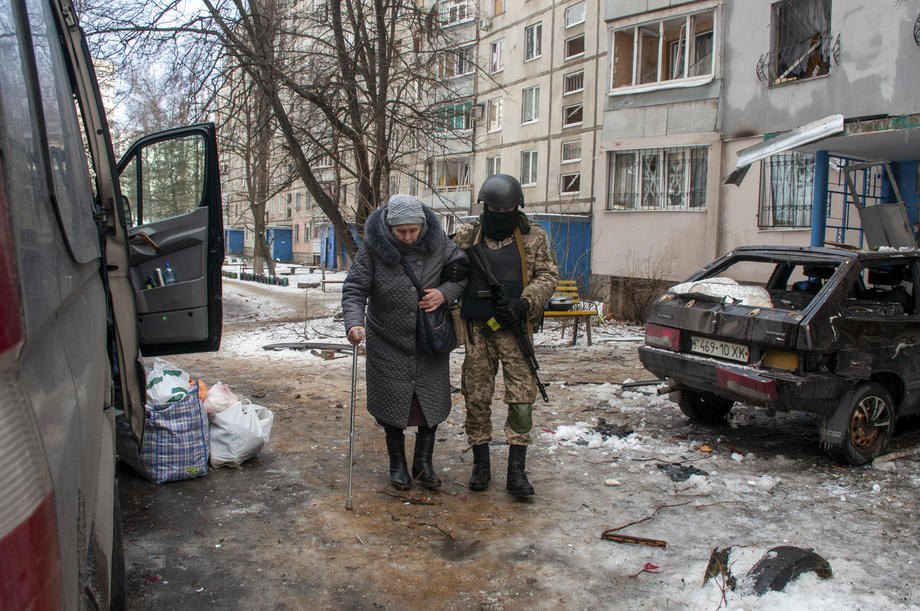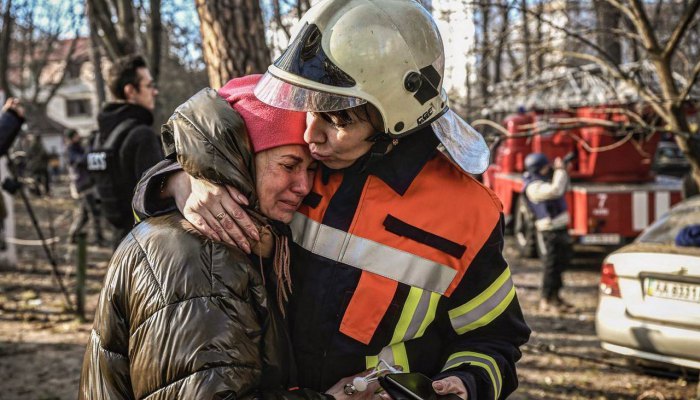I saw a picture of you hugging a woman who was injured after the shelling. Do you often have to communicate with victims?
I just try to capture what’s going on as far as apart from the rescuers, psychologists usually also come to the scene. But, for example, when rescuers start pulling people from the rubble and psychologists haven’t arrived yet, I can calm people down. If I see that people are stressed, in panic, clutching at their chest, and there is no one around, I just approach a person and try to help. Someone just needs a hug. Someone needs to be brought to the ambulance. There are different situations.
The woman in the photo was holding on, but… I know for myself I can't be pitied. If I feel bad, I will hold on, but if someone comes and comforts me, I will relax and cry. That's what happened to that woman. She held on, and then I hugged her, and she let go of her emotions. I told her that everything would be fine, everything would be Ukraine, that we were alive and that was the most important thing. The rest is unimportant, everything can be renewed. The main thing is life.
Do you usually come into contact with people rescued by the SES?
Not in wartime, this has never happened before. In peacetime, people used to come into contact afterwards. For example, parents whose children we rescued.
But two days ago, we rescued a parrot from the rubble. The owners were found on social networks, relatives came and took the parrot.
Other people feel like making friends on social networks, but I don’t have much time to follow everyone. Once we get victory, we are going to have time for plenty of talk and hug.
Describe your current working day?
I have been living at work since 23 February. I go home about once a week. I drop by for an hour or two to pick up things, water the flowers and go back to work. I took my pet to the office. And my relatives, mother, and son, are now in Mykolayiv.
Some people live at home and come when needed. Some people from the press service work remotely until there is a need to go to the site.
Do you have enough time to sleep and eat?
We have enough time to sleep and eat [is laughing – author]. Of course, a daily routine is not the same as before, because the schedule has changed. If there is a free minute, we try to have a rest. For the last five days (13-17 March) we wake up at four or five in the morning and go to remove fire or destruction after shelling.
What does your rescue colleagues’ work look like now?
Everything is strict and planned, rescuers are in place. I will not tell you exactly how we live now, so that this information could not be used by the enemy, but there are enough rescuers on the scene at the moment. We are coping on our own so far.
I usually go to large-scale calls related to the shelling. A couple of days ago we had five simultaneous calls. We try to get to all sites to record the crimes of the Russian occupiers. Of course, the whole press service could not arrive to all five sites at the same time. Two other representatives are here constantly on duty with me. They go to one site, while I go to another. And then I go back to the place with the severest destruction to work on the spot with journalists.
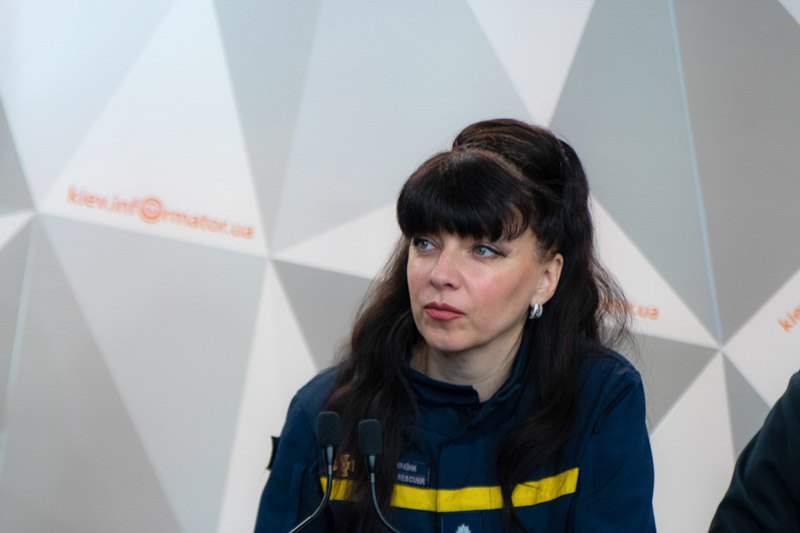
Do you divide calls by priority now?
No. One day we had a case when there were shelling of houses carried out simultaneously with an interval of 10 minutes. As a rule, the house either collapses or burns after shelling. The press service is the first to receive information about the call. I understand that journalists will come to the place with the severest destruction. So first I went to one site, then moved to the place where the house was burning from the first to the 16th floor.
Are there any moments that you capture but you don’t disclose them in summaries?
There was a collapse in Podil. According to people living in the house, there was a collection center for mothers with children in the basement. There were no people there, we did not find any bodies. But you know, it’s a pity, because there were essential things that could have helped someone.
But generally, we give all the operational information in our summaries. The only thing is that we can't do it quickly, as we have to provide reliable information about the number of dead, injured, etc. At present, we also cannot give specific locations of facilities as demanded by the Ukrainian Armed Forces.
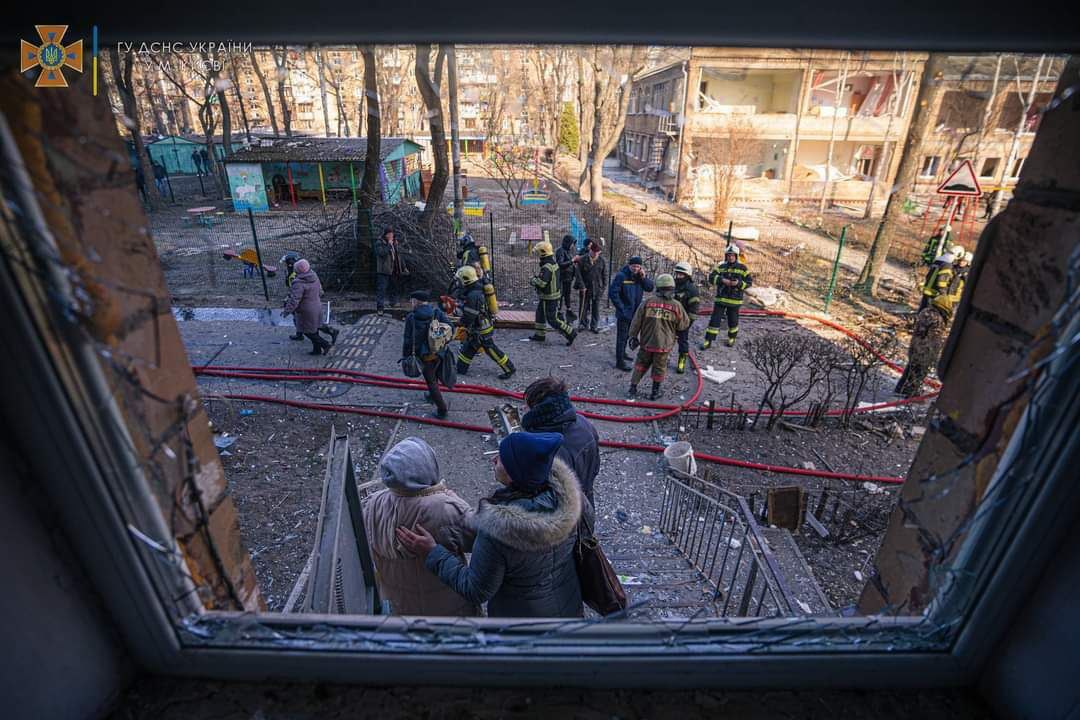
Actually, the next question concerns this very demand and your address to Anton Herashchenko. Why did you decide to record this video address and why was it important?
You don't have to be bold to record an address. If we, the officials, demand from people that they do not give guidelines, and then we do not follow these very rules, what can we talk about? Everyone should start with themselves and then demand from others.
This has been discussed and agreed upon many times. Our enemy does not even need intelligence to obtain information. It seems that they do not have exact maps of facilities. And using the information from posts on social networks they can make relevant adjustments.
Did Herashchenko answer you?
Yes, we had a telephone conversation. In my opinion, the person still does not think that he is doing something wrong.
I know that the heads of the Ministry of Internal Affairs and the State Emergency Service support me. That’s why I want to call on all our officials: before you give any comment or try to advertise yourselves, remember that now is not the time. Now we must all work to protect our people. Especially civilians.
I don't care who gives information to the enemy. If it were someone other than Herashchenko, I would have recorded the address anyway.
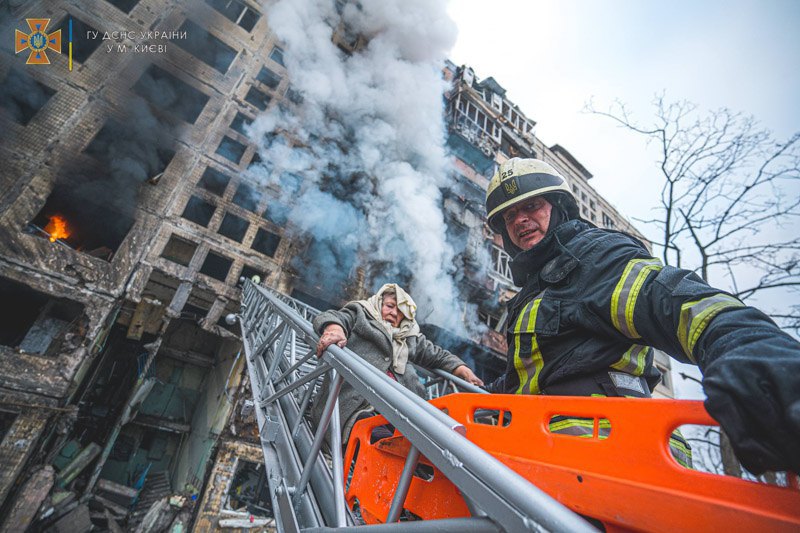
How has your job changed now?
Yesterday, someone outside the system told me that the rescuers were ready for war, because we have a war every day. Yes, the work is the same as in a peaceful life, but the circumstances in which fires and destruction emerge have changed. There is nothing new that I would not have seen for 25 years of service.
There is another thing that changed, in peacetime we carried out preventive work and taught children. Now, prevention has become more narrowly focused. For example, we publish information on what to do if you get trapped, where to run, if there is shelling, etc.
If to talk about something unusual in the early days, these were sirens. There was an inner fear for a while. Now I'm getting used to it. Sometimes I wake up at night because there should be a siren even though there is none. Will we be able to sleep without a siren when the war is over?
Now the hardest thing is to see human grief. But you need to get concentrated and not give free rein to emotions. I feel pity for everyone, I want to help everyone, but if we take everything to heart now, we won't have enough energy to work.
And we do not despair. Of course, if it's not about the death of people, we try to discuss work, make jokes. What positive can be said about the war? Death and sorrow. But I also see how my country comes together, how people come together, how they defend their state. This can be seen without words.
When the victory comes, the country will be different. The consciousness of our people has already changed.
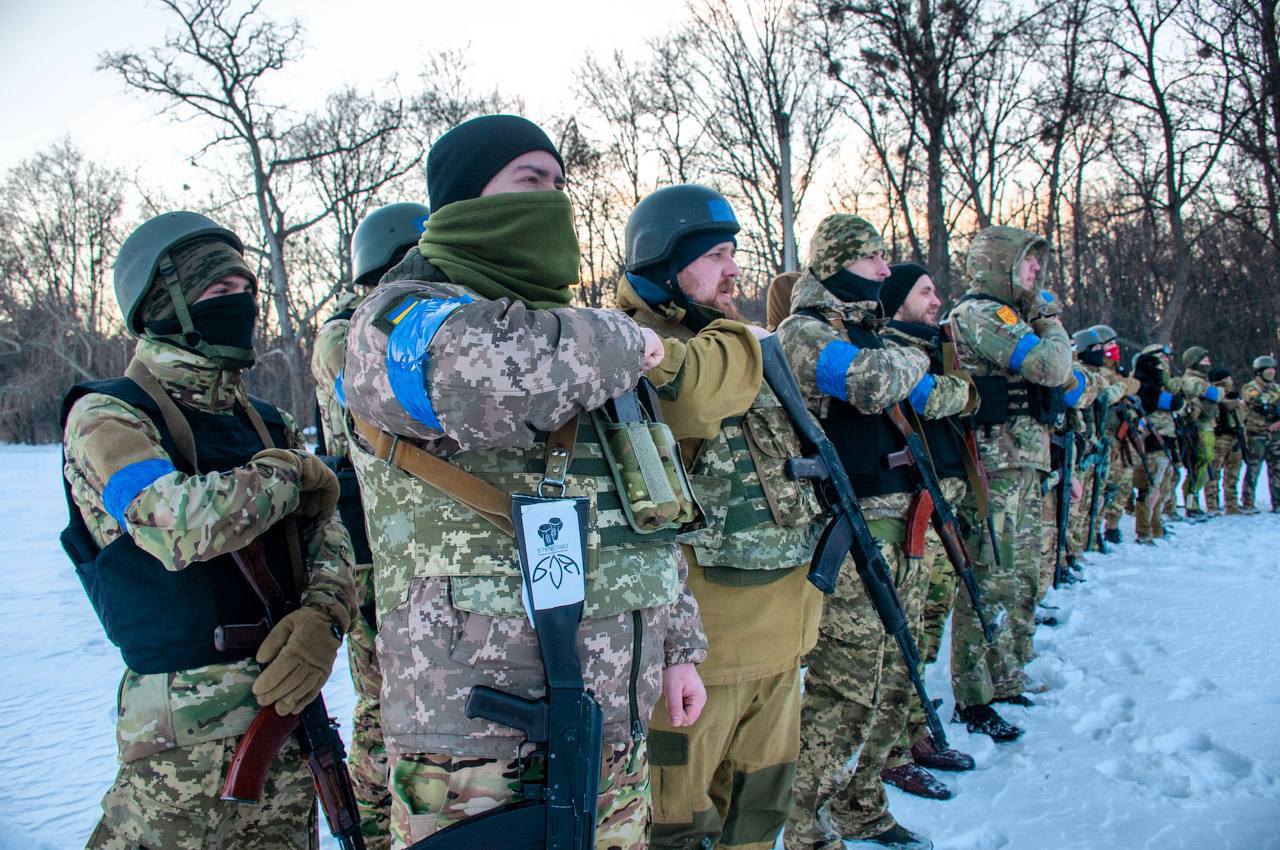
Three weeks have passed since the beginning of the war. What is the current mood among the rescuers in the team?
Unfortunately, we have losses. To date (18 March), four colleagues from the Kyiv unit have died. But we do not lose heart. Everyone is in place and ready to save people.
Each of us is an individual case. 95% of our rescuers live outside Kyiv. Some of us live in Chernihiv region, some in Kyiv region. Some of our colleagues can’t get home because they have already been cut off from their region. Those who lived in Horenka (Bucha district. - author) no longer have a home. Someone has not seen their family for a long time.
We stick together and try to support each other. The spirit falls when rescuers read some news, especially from foreign journalists, where journalists justify the Russian occupation. This is outrageous. Our guys love the Motherland, they are not indifferent and want to protect themselves, their relatives, their country.
